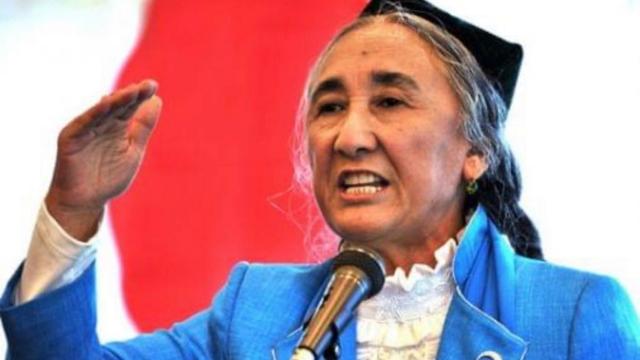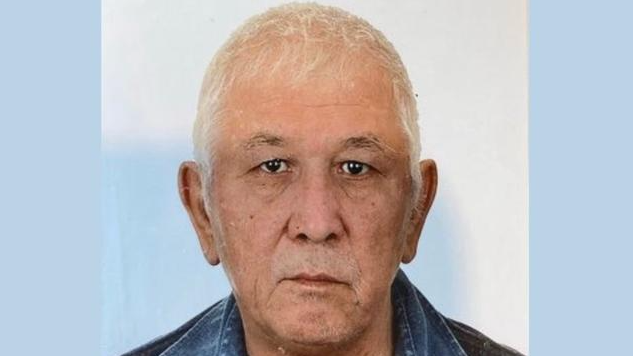Regarded as a hard-line independence activist, he was respected by many as a strong voice against oppression and genocide.
by Kok Bayraq
Bitter Winter, 02/06/2023
One day, a wife of a Uyghur activist reproached her husband, “You work all day, and you are always busy. Even so, China has never once called you a terrorist.” The husband replied with an apology, “That is indeed unfortunate. Let’s be patient. Once the book I’m currently writing gets published, I hope China will add me to the terrorist list.” This family anecdote is typical of the Uyghurs’ reaction to China’s accusation.
When a 2003 Chinese white paper accused the book by Abliz Abdulheq, “Independence or Death,” of being the separatists’ “terrorist handbook,’’ I congratulated him over the phone. He accepted my congratulations and expressed his happiness. He said, “This is the power of truth. If you have the weapon of truth, any tyrant in the world will surrender to you, directly, or indirectly, openly, or covertly.”
I asked, “Have you ever felt uncomfortable with the label ‘terrorist’?” He said, “Never, because it’s applied to me by China.” He continued, “It is neither surprising nor frightening. Because I was a bystander of the Urumqi rally on May 19, 1989, I was deemed a terrorist suspect and imprisoned for nine days. In 1990, one of my students wrote a poem about freedom. I praised the poem. I was considered a ‘pro-terrorist’ and was fired from my job at Xinjiang Pedagogical University. My student was imprisoned. Today, I have written five books against China. So it’s normal for China to call me a terrorist.”
I asked, “What if the world community believes this propaganda?” He replied, ”It would be unfortunate, but it won’t be the end of the world. I’m sure after a while, truth will show its strength again, and people will realize that I am a freedom fighter, not a terrorist.”
From my conversation with him, I understood that he was putting himself in the place of the Uyghur people while answering. As I anticipated, he concluded his speech by saying, “The worst thing for us is to be forgotten by the world and dropped from the international agenda. This situation will create an opportunity for China to escalate the secret genocide that it has been carrying out for 70 years in East Turkistan.”
The late writer, who passed away on January 19, 2023, predicted the current situation 20 years ago. In his article titled “Is there hope for our independence?” he stated, “From the day China invaded East Turkistan, they started the process of the Uyghur genocide.
If Chinese authorities allowed us to use our native language in the first few decades after occupation, it was not out of respect but because they needed this language to govern us. If they allow our songs and dance to this day, it is not because they recognize it to be precious but because it would be useful to portray us to the world as happy. If they haven’t torn apart our families by jailing the entire Uyghur population or stopped our population growth, it is not out of mercy but because they don’t have the financial power to build prisons of such a large scale or suppress a sizeable population.”
The late writer, who wrote books, such as “Secret Organization at Work” and “Turkistan Struggles,” and translated biographies of Sigmund Freud and Napoleon from Chinese to Uyghur, advocated that the wings of the Uyghur national movement inside and outside the homeland should work in harmony. He wrote in one of his articles, “Just as there has been no nation in recent world history that has gained its independence without international aid, no nation has been able to receive international aid without acting on its own.”
When we met in Istanbul in 2020, I asked, “Do you still hold on to your ideas, such as ‘the structure of People’s Republic of China is against the laws of nature; it will surely fall,’ ‘the United States and Europe will one day be on our side against China,’ and ‘the Uyghurs should strive to maintain their population dominance in the homeland?’“ He replied, “Not only do I maintain these opinions, but I also insist ‘to expect only prayers from the Islamic world, not to seek help, and to see the West as a friend, rather than a savior.’“
He continued, “I still believe that we need to announce to the international community that we are a society that has not only been oppressed for decades but has also continued the struggle against oppression, and that for our survival, we as a society do not have to walk on the backs of others but just need to hold our hands to help us stand up.”
Abdulheq considered the existing pacifists’ thoughts among Uyghur activists as “absolute peace, unconditional peace,” and criticized them as acquiescing oppression and slavery, saying, “I still find empty international sympathy without practical help as an insult.”

Uyghur leader Rebiya Kadeer comments on the author’s views as follows, “If we have not surrendered to China’s assimilation policy despite being deprived of a real national education for 70 years, if our youth are revolting against the oppression without fear of death despite China’s atomic weapons, it is because of the work of sharp-minded and firm-willed writers, such as Abliz Abdulhek, among the Uyghurs.”
The Uyghur people lost a determined and patriotic writer. But the voices of hope he sounded still ring in our ears: “We are a deep-rooted nation living in the 20th century. With this genocide, China can reduce our population, slow down our development, and delay our rise, but it cannot erase us from the face of the earth. China will definitely have to be held accountable for what it has done.”

